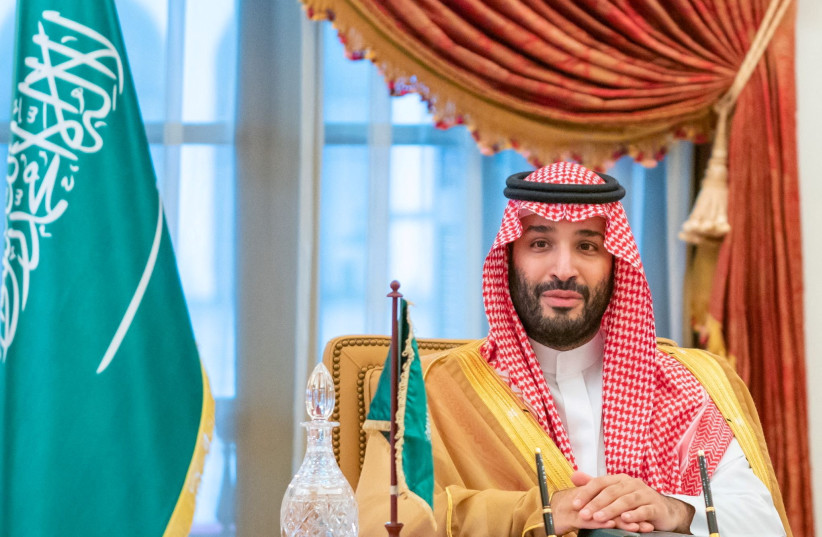Civil war.
Colleagues, friends and neighbors – forced to choose sides.
A complete reshaping of the landscape, which will transform the world as we know it... now and for all time.
Fortunately, I’m not talking about judicial reform.
I’m talking about golf.

LIV Golf, the brainchild of Saudi leader Mohammed bin Salman, known as MBS, has revolutionized the staid, glacial pace of how golf is organized. And after years of litigation, acrimony and name-calling, the two brands have now merged.
So the question is this: What difference does LIV Golf make in the buttoned-up, restrained world of golf? And the answer is this: Simply everything.
Many golf fans will tell you that the revolution was long overdue, while others say that the PGA Tour falls into the category of “if it ain’t broke, don’t fix it.” Yet for golfers and fans alike, as Tiger Woods exits the scene, the tournaments have become boring and repetitive, fought mostly by no-name guys good enough to be among the world’s best but not good enough to win consistently or even be recognizable.
For a decade and a half, Woods drove fascination in the sport and caused millions, including many people of color who had never picked up a club before, to take the game seriously. The PGA Tour grew fat and happy on the radically increased TV ratings, sponsorship dollars and endorsement deals. From the standpoint of the players, though, not nearly enough of that money trickled down into their pockets.
This is the era of mega-contracts in sports, with an increasing number of players crashing through the $50 million per year mark in sports of all kinds around the world. Except in golf... until LIV Golf came along.
How have LIV Golf and Saudi Arabia changed golf forever?
Greg Norman, one of the previous generation’s top golfers, has long resented the hegemony of the PGA Tour and has always wanted to do something about it. Thanks to MBS, he’s been able to do just that. Here’s what Norman, and the Saudis, changed:
On the PGA Tour, the big names can pick and choose when they want to appear, which means that fans, whether watching at home or attending live, have no idea which big names they’ll see, if any. In LIV Golf, big-name players play every single weekend.
In the PGA Tour, the best players were earning about as much as an NBA bench warmer. In LIV Golf, the players are fully compensated for their brilliance, competitive flair and the thrills they bring fans.
In the PGA Tour, tournaments last for four days, which in some ways, though traditional, is an unfair test. Golf is such a streaky sport that you could put three awesome days together and then falter on day four, while a “little engine that could” competitor, playing decent but not memorable golf for four straight days, wins the trophy and the prize money.
LIV Golf matches last for just three days or 54 holes. (LIV is the Latin numeral for 54. Get it?) Every stroke matters that much more because you’ve got that much less time to catch up if you fall behind. And the purses? LIV golfers are playing for millions every weekend. This is different from the PGA Tour, where golfers can make a good living even if they never, ever win.
Put it all together, and LIV Golf raised the biggest challenge to the PGA Tour since Black players finally won the right to compete in it.
LIV Golf has more than its share of critics because most people hate change, especially in a tradition-bound environment like golf. On top of that, the LIV Golf money comes from the Saudis. Yet critics who suggest that LIV Golf is somehow tainted by Saudi money conveniently forget that a large number of PGA Tour sponsors have done business with Saudi Arabia for decades. That’s what Al Gore would call an inconvenient truth.
I attended several days of a LIV Golf match at Bedminster, New Jersey, last summer, where the tournament returns on August 11 through 13, after stops in Spain, London and West Virginia. Loud music was playing, the fans were encouraged to be raucous, and the golf, as played by many of the greatest names in the sport today, was superlative.
These days, Israel is quietly reshaping its relationship with Saudi Arabia as both nations, along with current members of the Abraham Accords, find common cause in combating Iran’s support of terrorism throughout the Middle East. So LIV Golf is right on time from a geopolitical standpoint.
In short, there’s nothing wrong with golfers being given the opportunity to earn the same kind of big money that other athletes routinely receive. The PGA had plenty of time to make its product more enticing instead of opening the door for a brash, well-funded competitor.
How the two tours, with their radically different models, will blend together is anybody’s guess. But for now, credit Greg Norman for dragging the PGA Tour, kicking and screaming, into the 21st century. And you can thank his pal MBS for that.
